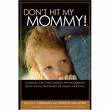Last week, we talked about some operationalized "definitions" of trauma, in terms of how the medical, psychological, and psychiatric professions have conceived of "PTSD" or "Posttraumatic stress disorder." But if post-traumatic stress disorder is the "definition" of trauma, what does the "T" in PTSD stand for? What is "trauma" anyway?
How can "trauma" seem to refer to the cause and the consequences?
So people were wondering what constitutes a trauma... and how PTSD and trauma could be referred to using the same word.
"Trauma" refers to both an "injury/wound" and the "conditions caused by this" (for physical and psychological "injuries").
The first known publication of the word "Trauma" in English was in 1693 in Blancard's Physical Dictionary. The definition was "a wound from an external cause."
The Oxford English Dictionary Offers This Definition of Trauma (and "traumatic")
1. Pathology. A wound, or external bodily injury in general; also the condition caused by this; traumatism.
2. Psychoanalysis and Psychiatry. A psychic injury, especially one caused by emotional shock the memory of which is repressed and remains unhealed; an internal injury, especially to the brain, which may result in a behavioural disorder of organic origin. Also, the state or condition so caused.
* * * * *
An Extensive List of Links to Definitions of TRAUMA on the Web
Most definitions focus on an "injury" or "wound" and many definitions make specific reference to the body, for example "a physical injury" or "an injury to the body."
Not as many mention emotional, psychological, or spiritual traumas, and many of the definitions focusing on bodily injury do not mention the corresponding injury to the self/mind/emotions that can accompany physical injury. Many of these are medical sites, which could account for some of the skewing towards physically-focused definitions.
Some definitions stipulate that it is "caused by an external force." How do you think this definition deals with suicide or self-cutting?
A rare few implicate "violence" as the cause of trauma. Do you think violence has to be present in order for trauma to occur?
How do you define trauma? What do you think of these definitions? Have you read other definitions?
Topics List: Spring 2008
- VIOLENCE, TRAUMA AND SOCIAL WELFARE COLLOQUIUM
- Week 1: Introduction and Self-Care
- Week 2: Historical and Theoretical Perspectives
- Week 3: Biopsychosocial Impact of Trauma
- Week 4: Violence Against Women
- Week 5: Religion, Race, Ethnicity, and Violence
- Week 6: Etiologies of Violence; Perpetrators of Intimate Partner Violence
- Week 7: Child Sexual Abuse; Suicide and Self-Harm
- Week 8: War, Crimes Against Humanity, and Genocide
- Week 9: Poverty and Violence in Oakland & Bayview-Hunter's Point
- Week 10: Rape as a Weapon of War; Violence Against LGBT people
- Week 11: Interventions for Trauma (with Greg Merrill)
- Week 12: Child-Parent Psychotherapy
- Week 13: Truth & Reconciliation in the Aftermath of Violence (with David Androff)
- Week 14: Violence, Trauma and Social Work (student presentations)
Monday, February 4, 2008
Subscribe to:
Post Comments (Atom)
Who Are You? (check all that apply)
How did you find this blog?
Links to Browse & Buy Books
Trauma and Recovery

by Judith Lewis Herman
Don't Hit My Mommy

by Alicia Lieberman and Patricia Van Horn
Violence: A National Epidemic

by James Gilligan
Ayaan Hirsi Ali
- Submission Part 1 (a short film in which the words of the Koran are written on women's bodies as they speak their stories of violence and trauma)
- "Infidel" (her autobiography of growing up a refugee and becoming a member of the Dutch Parliament)
- "The Caged Virgin" (her essays about women and Islam)
- Ayaan's Personal Web Page
- Wikipedia (good summary of her life, philosophy, and work)
Submission
Ayaan Hirsi Ali

from the cover of "Infidel"






No comments:
Post a Comment